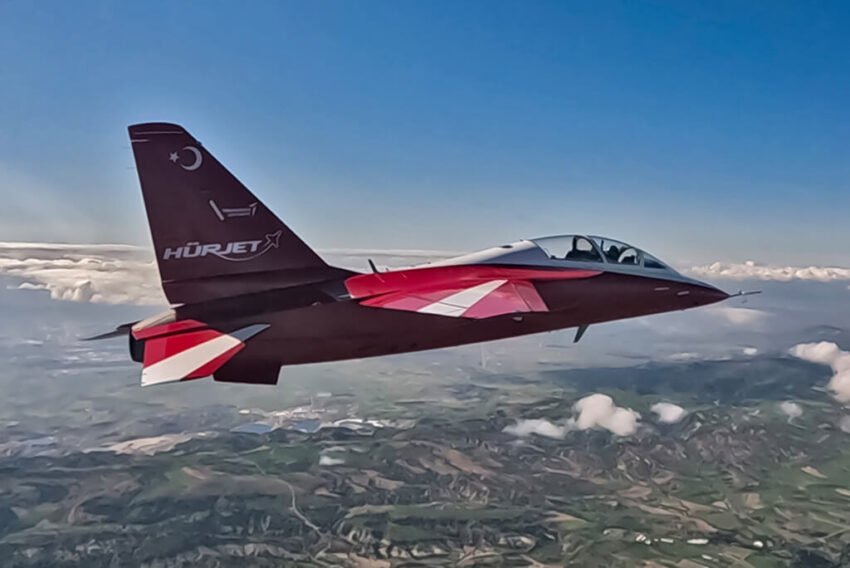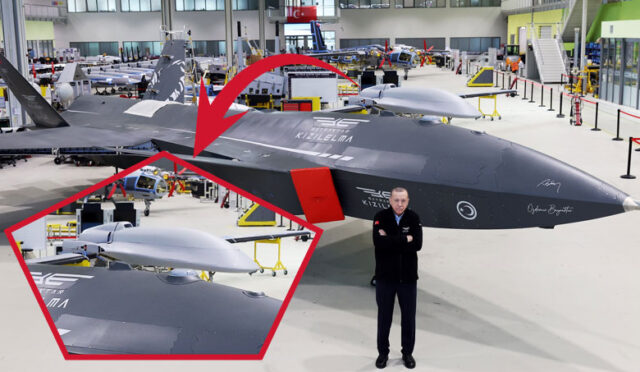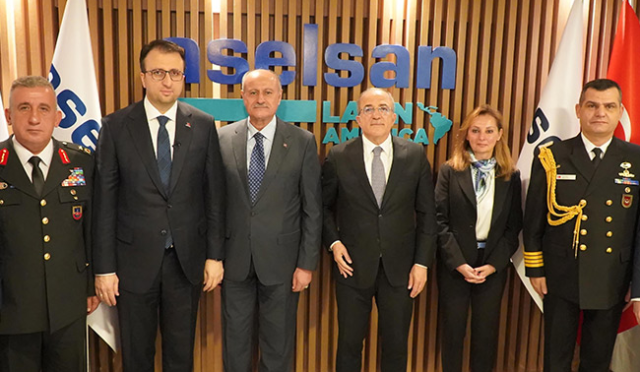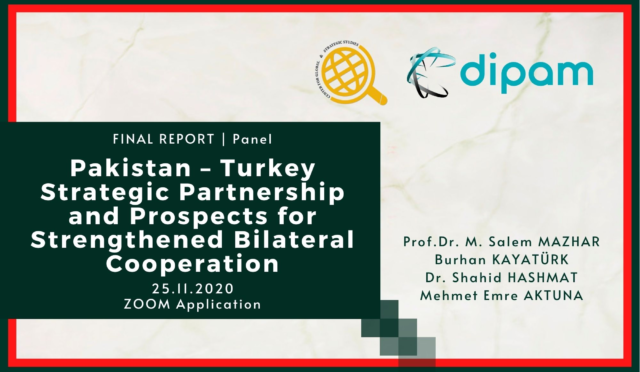In a significant development for Turkey’s defense industry, the collaboration between Turkish Aerospace Industries (TUSAŞ), Airbus, and Spain’s Defense Ministry on the HÜRJET project has been highlighted as a pivotal moment in European defense cooperation. The HÜRJET, Turkey’s first national jet trainer and light attack aircraft, is not just a technological milestone for Turkey but also a strategic asset that underscores Turkey’s growing influence in the European defense landscape.
Strategic Partnership and European Integration
The partnership, formalized through a series of agreements, including a Memorandum of Understanding (MoU) signed in December 2024, aims to integrate the HÜRJET into Spain’s air force training systems, replacing aging aircraft like the Northrop SF-5. This collaboration is part of a broader trend where Turkey is increasingly positioning itself as a key player in the European defense market. The involvement of Airbus, a global leader in aerospace, further amplifies the project’s significance, leveraging its expertise in design, manufacturing, and in-service support alongside TUSAŞ’s innovative capabilities.
Expert Insights: Turkey’s Indispensable Role
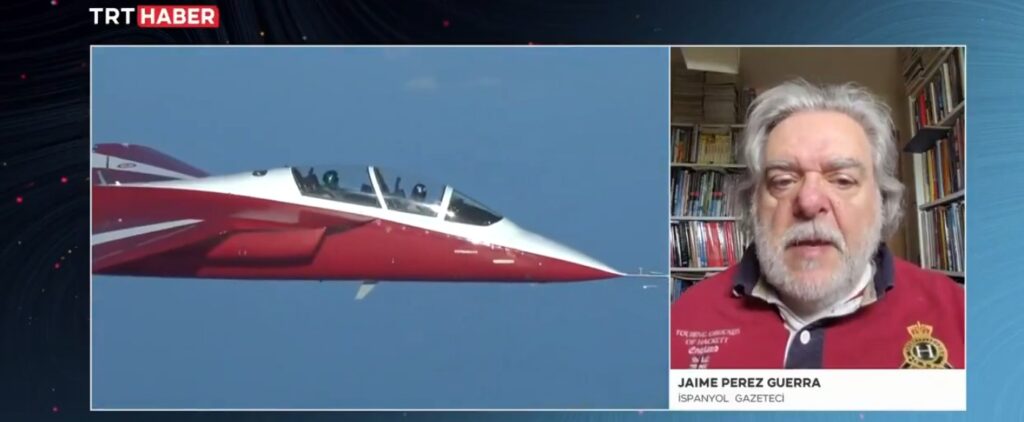
Defense-aviation expert Jaime Perez Guerra, in an interview with TRT HABER, emphasized the transformative impact of this collaboration. “Turkey has become an indispensable partner for Europe,” Guerra stated, reflecting on Turkey’s evolving role in the continent’s defense architecture. This sentiment is echoed across various analyses, where Turkey’s defense sector, particularly through projects like HÜRJET and Baykar’s drone technologies, is seen as reshaping traditional defense supply chains and alliances.
Guerra’s comment is particularly relevant in the context of Turkey’s recent defense industry achievements. The HÜRJET project, coupled with Baykar’s acquisition of Piaggio Aerospace and its collaborations with Italian and Spanish firms, illustrates Turkey’s ambition to not only meet domestic defense needs but also to export its capabilities. This dual strategy enhances Turkey’s strategic leverage within NATO and the European Union, challenging the dominance of traditional defense powers and fostering a more diversified defense ecosystem.
Broader Implications for European Defense
The HÜRJET project is more than a bilateral agreement; it symbolizes a shift in European defense dynamics. Turkey’s defense industry, which now meets over 70% of its domestic needs and aims to exceed 80% by 2025, is increasingly integrated into European and NATO frameworks. This integration is evident in the planned NATO training center in Spain, where HÜRJET will be utilized, potentially exposing the aircraft to a global audience and further solidifying Turkey’s reputation as a defense innovator.
Moreover, Turkey’s role in the Ukraine-Russia conflict, its mediation efforts, and its growing influence in the Middle East and North Africa have positioned it as a critical actor in European security. The HÜRJET project, therefore, is not isolated but part of a broader strategic realignment where Turkey’s defense capabilities are seen as vital for addressing contemporary security challenges, from hybrid warfare to technological innovation.
Challenges and Opportunities
Despite the optimism, challenges remain. Turkey’s defense industry growth has occasionally strained relations with some NATO allies, particularly over issues like the S-400 purchase from Russia. However, projects like HÜRJET and Baykar’s international collaborations demonstrate Turkey’s commitment to aligning with Western defense standards while pursuing indigenous development. This dual approach is crucial for maintaining Turkey’s strategic autonomy while deepening its integration into European defense networks.
For Europe, the opportunity lies in leveraging Turkey’s capabilities to enhance collective security. As Guerra noted, Turkey’s role as an “indispensable partner” is not just about military hardware but also about strategic partnerships that can address evolving threats. The HÜRJET project, therefore, is a test case for how Europe can adapt to a multipolar defense landscape where traditional alliances are supplemented by new partnerships.
The HÜRJET project, as highlighted by Jaime Perez Guerra’s insights, marks a significant chapter in Turkey’s defense journey and its relationship with Europe. It underscores Turkey’s transition from a consumer to a producer of advanced defense technologies, positioning it as a key player in the European defense market. As Turkey continues to innovate and collaborate, its role as an indispensable partner for Europe is likely to grow, reshaping the continent’s security architecture in the process. This development is a testament to Turkey’s strategic vision and its potential to influence global defense dynamics in the years to come.
